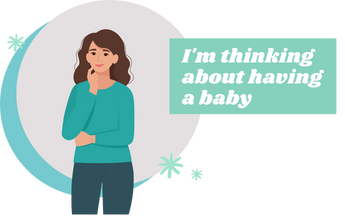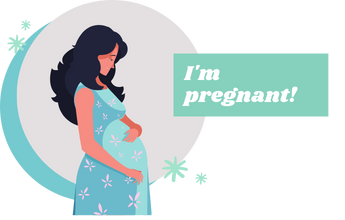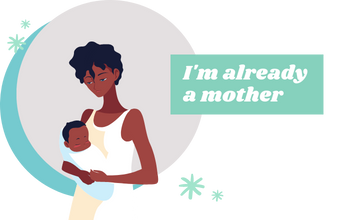Epilepsy & Pregnancy – Questions for your Doctor
Your doctor should help you understand everything you’ll need to know as a woman with epilepsy.
The questions below can help you to prepare for your conversation with them.
Questions for women with epilepsy
Will my anti-seizure medication (ASM) interact with my contraceptive?
Some ASMs can increase the risk of your contraceptive failing. If you’re a woman of childbearing age with epilepsy, you really need to talk with your doctor about contraception and family planning, so you can avoid an unplanned pregnancy.
Will my ASM affect my sex life?
Any ASM can cause sexual difficulties. If you have a problem, ask your doctor if you can try a different ASM.
Do I need to worry about seizures during sex?
Seizures during sex are rare, but this is a common worry. You may feel embarrassed talking with your doctor about sexual problems, but when you speak openly, your doctor can understand your issue and help you overcome it.
Questions for women who are trying to conceive
What should I know before becoming pregnant?
Most women with epilepsy have healthy babies but forward-planning is very important. Talk with your doctor well in advance if you are considering having a baby.
Will my epilepsy make it more difficult for me to conceive?
Epilepsy alone won’t affect your ability to conceive – women with epilepsy generally have the same fertility as the general population. However, some anti-seizure medications (ASMs) can reduce your likelihood of getting pregnant, so talk to your healthcare provider about your medication if you are planning to have a baby.
What are my options for fertility treatment?
Speak to your healthcare provider about what your options are if you’re struggling to conceive naturally.
What are the benefits of pre-pregnancy seizure control?
Seizure control is an issue to discuss with your doctor and one of the reasons why planning a pregnancy well in advance is so important.
Are there alternative treatment options to ASMs that could work for me?
Speak to your healthcare provider about options that may or may not be suitable for you, such as surgery or vagus nerve stimulation (VNS) therapy.
Will my child have epilepsy?
If you’re worried that your baby might have epilepsy, talk to your doctor about seeing a genetic counsellor.
I am taking valproate and want to get pregnant – what should I do?
Valproate can be very effective in controlling seizures, but if you have epilepsy and get pregnant while taking valproate, your baby is at high risk of serious birth defects and developmental disorders. If you are planning to get pregnant and you’re on valproate, it is vital you talk to your doctor before you conceive. You should also ensure that you read the patient guide and enclosed leaflet that comes with your medication.
Will my seizures change when I am pregnant?
Some women have more seizures, or more severe seizures during pregnancy, but for the majority of women the frequency and severity remains unchanged. Ask your doctor about this if you are worried.
Questions for women who are pregnant
I’m pregnant and am taking valproate. What should I do?
If you think you’re pregnant while taking valproate, contact your doctor as soon as possible, and do not stop taking your medication without your doctor’s advice. Your doctor may continue to prescribe valproate, but only if there’s no other suitable treatment for your epilepsy.
Will my medicines affect my baby?
Both seizures and anti-seizure medications can pose risks to a developing fetus. There are a number of factors that can have an effect on the baby’s cognitive performance and function as it grows up. It is important that you talk with your doctor about this.
Can I have a normal delivery and how can I reduce my risk of a seizure during labour?
Talk with your doctor and obstetrician before your planned admission date about seizure management while in labor. They will help to guide you to a delivery plan to make labor as safe as possible for you and your baby.
Can I breastfeed my baby?
In general, if you have epilepsy, you can breastfeed your baby without any harmful effects to them from your breast milk, but you might like to ask your doctor for guidance on this.
Will my seizures change after I have a baby?
Ask your doctor about monitoring your medication levels in case they need to be adjusted and on the symptoms you need to recognise if levels are too high. Lack of sleep and hormone changes may also influence seizure frequency in the postpartum period.
What is the most suitable contraception to use after giving birth?
Make sure you talk with your healthcare providers to identify the best contraception method in the weeks after the birth. This is especially important if the contraception method you were using is hormonal.


